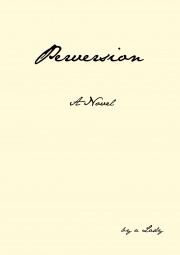Difference between revisions of "Perversion"
(→Further reading) |
|||
| (2 intermediate revisions by the same user not shown) | |||
| Line 26: | Line 26: | ||
==Background== | ==Background== | ||
| − | Austen's | + | Austen's reasons for embarking on the ''Perversion'' project remain unclear. What is known is that she was unhappy with the way her career was going and wished to find a way out of the dreadful zombie stories that her editors were forcing her to produce, often at gunpoint. After the debacle of ''[[Monsterfield Park]]'', she managed to find some time to herself by feigning a persistence of vapours and set about finding a new direction for her writing. |
| + | |||
| + | Precisely why this new direction involved the base and disgusting activities so meticulously delineated in ''Perversion'' remains a mystery, although one explanation involves a chance encounter with [[Lord Byron]] at an auction of bags, carpets, gems and pastries. This account has, however, largely been dismissed for lack of a satisfactory explanation as to why Byron would have had any interest in sacks and rugs and rocks and rolls. | ||
==Critical appraisal== | ==Critical appraisal== | ||
Latest revision as of 23:11, 28 May 2011
| Perversion | |
|---|---|
 | |
| Author | Jane Austen |
| Country | United Kingdom |
| Language | English |
| Genre(s) | Novel |
| Publisher | Private |
| Publication date | 1811 |
| ISBN | N/A |
Perversion is the sixth novel by the English novelist Jane Austen. Completed in 1811, its heady mix of recreational pharmacology, satanic rites and transgressive sex was too much for Regency society and it failed to find a conventional publisher. Austen had to resort to writing copies out by hand and distributing them herself on street corners - at least in the counties where the book had not already been banned. Even then, many copies ended up being used as kindling. However, in the intervening years, the book's reputation has grown and is now an acknowledged influence on the work of Hubert Selby, Jr., Irvine Welsh and Jilly Cooper.
Long considered unfilmable, a less than faithful version by Tinto Brass finally made it to the screen in 2010 under the name La Bunga Bunga di Gianetta. Rumours persist of a more serious adaptation being filmed by Nagisa Oshima under the working title Ai No Austena.
Background
Austen's reasons for embarking on the Perversion project remain unclear. What is known is that she was unhappy with the way her career was going and wished to find a way out of the dreadful zombie stories that her editors were forcing her to produce, often at gunpoint. After the debacle of Monsterfield Park, she managed to find some time to herself by feigning a persistence of vapours and set about finding a new direction for her writing.
Precisely why this new direction involved the base and disgusting activities so meticulously delineated in Perversion remains a mystery, although one explanation involves a chance encounter with Lord Byron at an auction of bags, carpets, gems and pastries. This account has, however, largely been dismissed for lack of a satisfactory explanation as to why Byron would have had any interest in sacks and rugs and rocks and rolls.
Critical appraisal
Perversion's limited distribution militated against it receiving any form of mainstream criticism. However, the contemporary critic Joseph Robert Brighouse appears to have seen it as something of a return to form, declaring
'Tis a most STRANGE and WOND'ROUS work, with a STUPENDOUS tally of CORPSES as well as much GROPING and BOOBIES. Whatever Miss Austen has been PARTAKING of, I DEMAND some for myself FORTHWITH!
See also
Further reading
- The Oxford Book of Regency Filth. OUP, 2nd edition, 1996.
- Pitt, Fi. Where There's Muck, There's Tinto Brass. BFI, 2005.